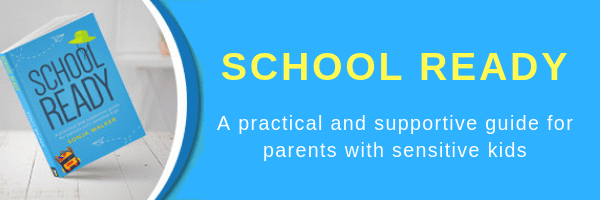Sensitive kids: How to have a successful parent-teacher meeting

I once taught a student whose anxious mum was always keen to speak with me.
I understood that her earnest pursuit of my attention was simply an attempt to ensure the best for her sensitive only child and did my best to respond positively to her frequent emails, phone calls and unannounced after class visits.
I have to say, though, that she frightened the daylights out of me late one afternoon when she lay in wait for me in the school garden and ambushed me in the staff carpark.
As she emerged from the shrubbery with ‘Sonja, do you have a moment?’ I knew that I needed to have a chat with her about the times and places that were best for us to talk.
Timing is everything
While I am sure you will you not be hiding among the hibiscus flowers and stalking the staff at your child’s school this year, it’s worth remembering that there are some do’s and don’ts when it comes to communicating with teachers about your sensitive child.
Firstly, there are times in a teacher’s day that are particularly busy.
You might think that right before the morning bell is the perfect moment for a quick catch up before the day begins. I hate to say it, but in most cases you’d probably be wrong.
8.55am is usually when time-poor teachers are gathering resources, finishing playground duty or simply trying to grab a coffee because their own family’s dash to preschool, school and work meant they haven’t had breakfast.
First thing in the morning is not the time to interrupt them as they put their plan for the day into action.
Similarly, straight after school can be a time when staff meetings, bus duty and professional development programs can prevent teachers from stopping to chat.
It’s not personal, but sometimes it’s just not possible to put everything on pause for a parent who could have sent an email or sought the answer to their question from the fabulously efficient staff at the school’s front office.

The first week of term
During the first week of term, teachers are often putting faces to names and working out who’s who in their class.
They’re also supporting their students’ adjustment to regular routines, negotiating new timetables and tinkering with classroom technology that may or may not be working properly after the holiday break.
Few teachers are able to have a deep and meaningful conversation with you about your child’s progress on the third day of the school year.
For everyone’s sake, hold off on requests for a parent-teacher meeting if you can. You’re likely to have a much more productive conversation when your child’s teacher has come to know son or daughter better.

First time school parents
If you are a brand new primary school parent, it may take a while to get used to the fact that the relationship you will build with your child’s classroom teacher may not be the close, first-name-basis bond you previously enjoyed with their early childhood educators.
In early education settings, child to adult ratios are smaller and so it is more common for educators to be able to give parents a personalised summary of their child’s day.
At ‘big school’, the story is very different.
Your child’s teacher may have more than 25 children in their care and it is simply not possible for them to speak with every family every day.
You may find that extracurricular coaching responsibilities and even their private role as parents to their own children might also mean your child’s teacher can’t stop to chat with you for ten minutes just because the timing works for you.
Sometimes, teachers who try to talk to everyone run the risk being accused of playing favourites, or worse, earning the wrath of their principal when they run late for scheduled after school meetings.
Neither of these outcomes are good for the teacher, and so avoiding them at all costs is important when you’re building a positive relationship with them.
Don’t be offended
A teacher’s apparent reluctance to spontaneously stay until 3.45 pm to talk with you about your child’s unique needs is unlikely to be the result of a lack of interest, and if you interpret it that way, you will miss the point.
Most teachers are more than happy to organise a time to talk with you about important matters.
When they meet with you, they want to be able to prepare for your conversation by gathering resources so they can answer your questions thoroughly and address your concerns.
Ambushing them on the doorstep of the classroom is not the way to build understanding or cooperation, so if you show that you respect their time by making an appointment that’s mutually convenient, you will go a long way to building a positive partnership.
So, just in case you think it’s a great idea to get to school half an hour early so that you can ‘have a quick chat’ with your child’s teacher, think again.
There’s a time and a place – and when you show respect for their time, your child’s teacher will have more time for you.
Written by Sonja Walker
© 2021 Kids First Children’s Services
Is your child School Ready?
Kids First Children’s Services director and teacher, Sonja Walker is the best-selling author of SCHOOL READY: A practical and supportive guide for parents with sensitive kids


